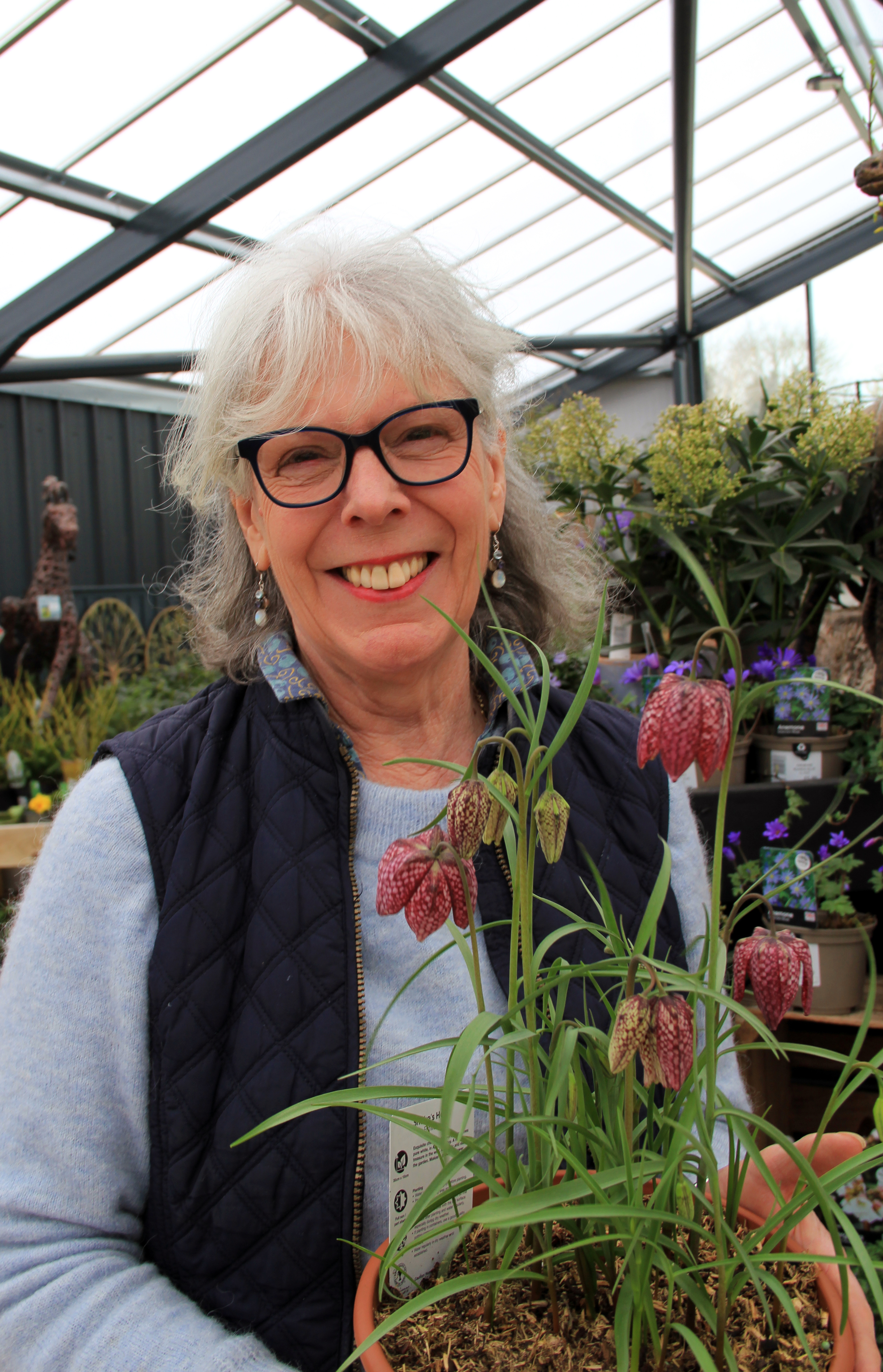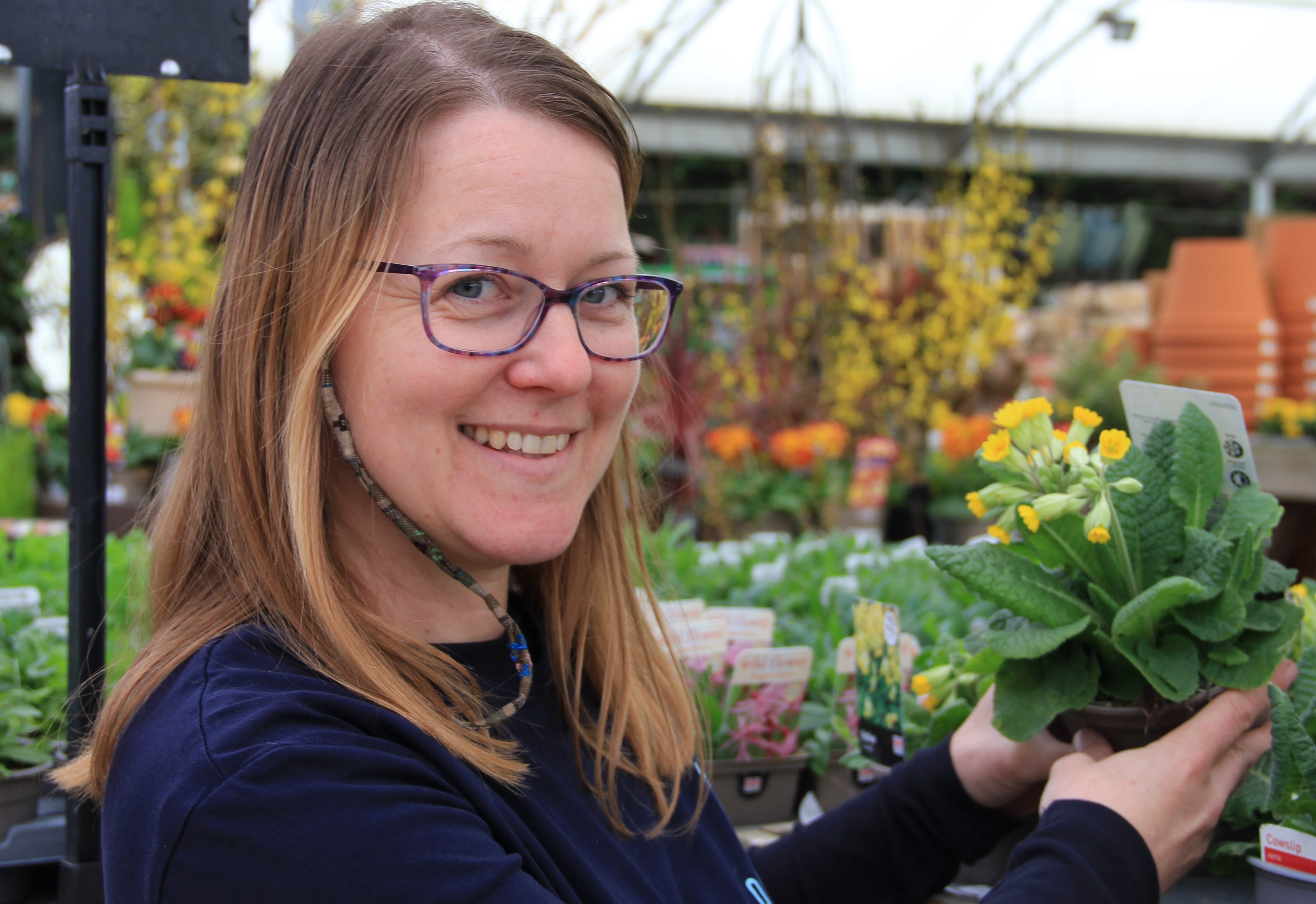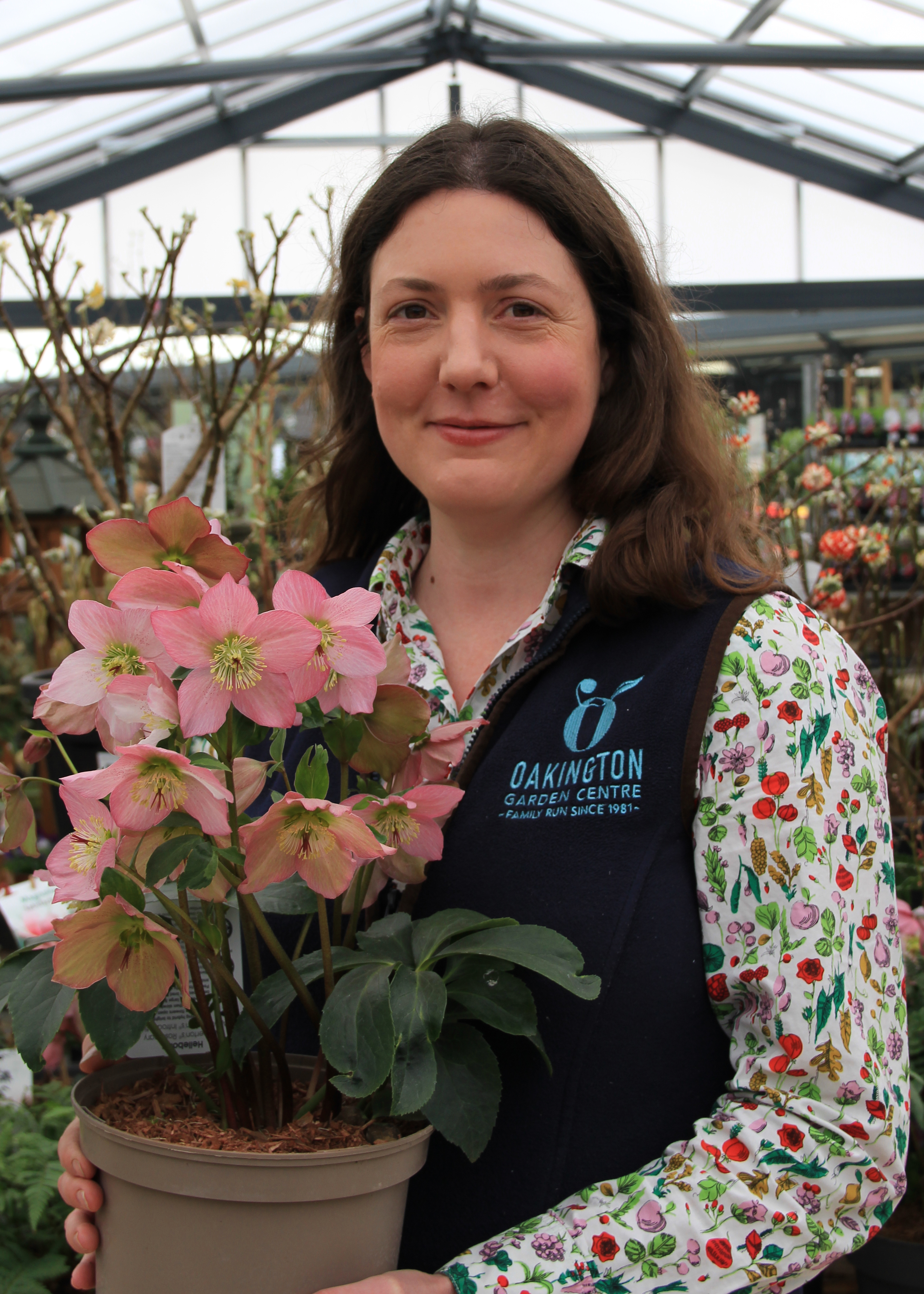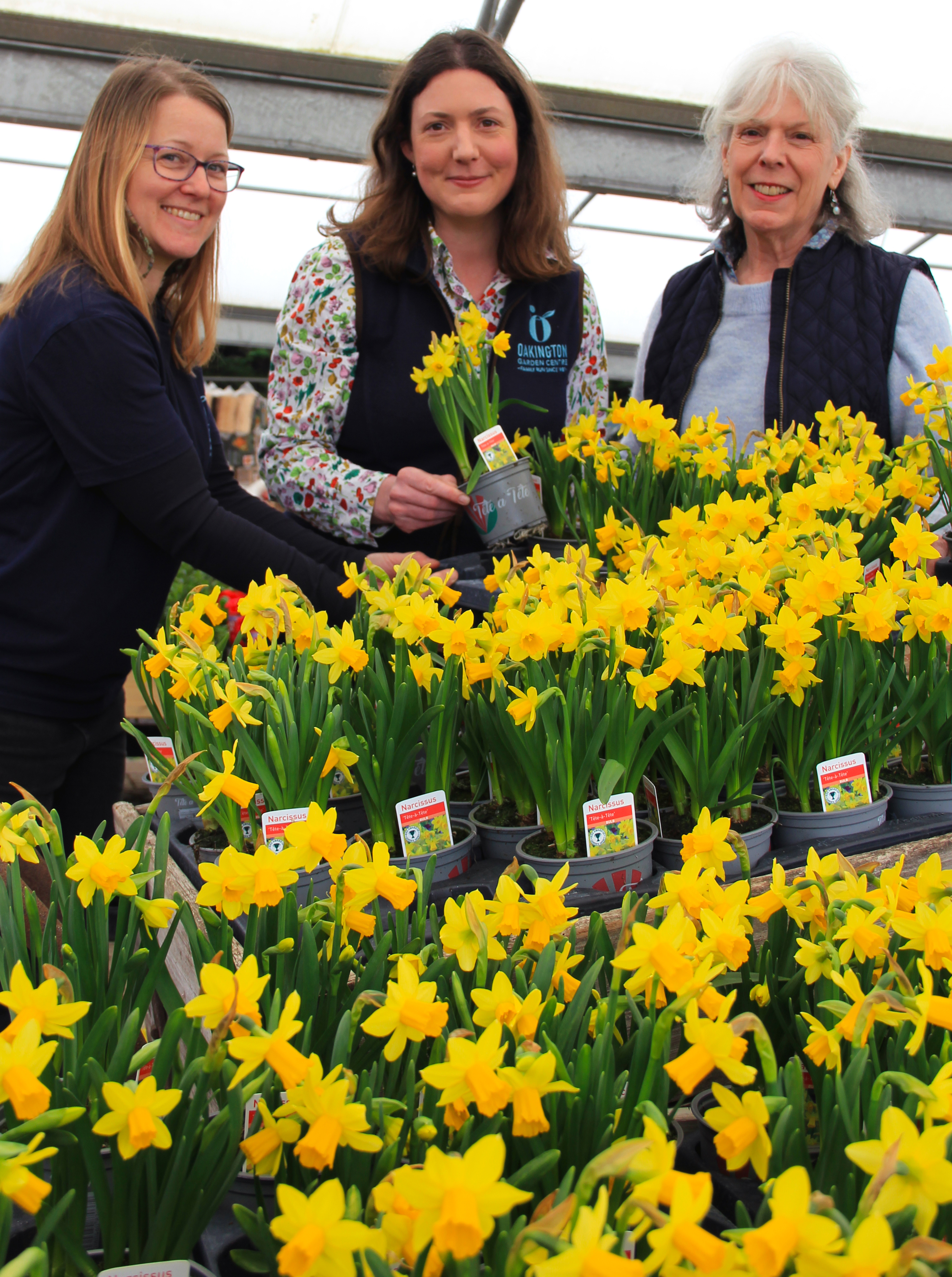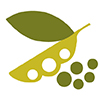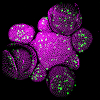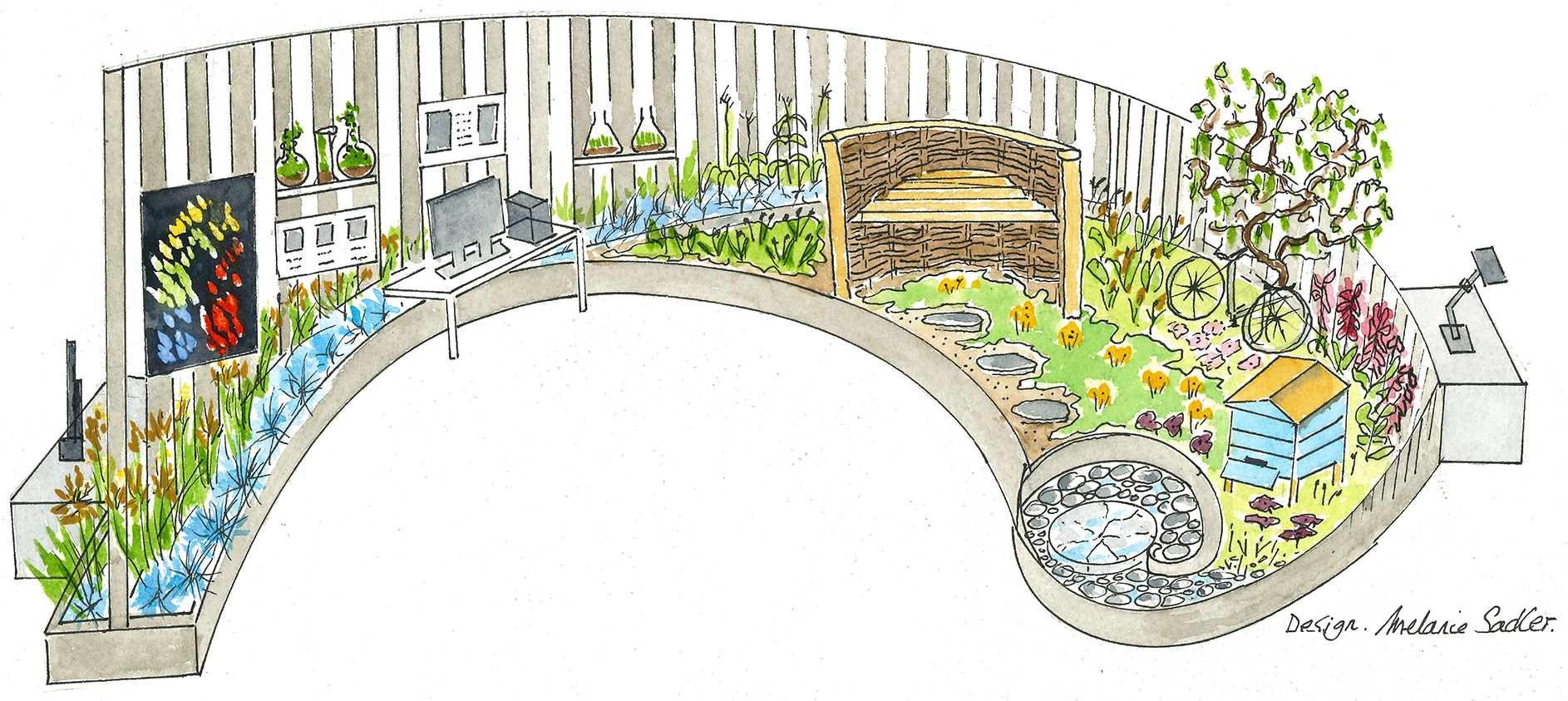
Illustration of the planned Sainsbury Laboratory Cambridge Blooming Numbers exhibit for the RHS Chelsea Flower Show 2025. Melanie Sadler designed The Pollinator Patch to showcase the incredible diversity of plants that can be grown in a small area to support bees, butterflies, and other important pollinator species. Illustration by Melanie Sadler.
Oakington Garden Centre takes The Pollinator Patch to RHS Chelsea Flower Show
Oakington Garden Centre, a beloved family-run nursery based in the village of Oakington on the outskirts of Cambridge, is creating a mini garden to champion pollinators for the Sainsbury Laboratory Cambridge: Blooming Numbers exhibit at the RHS Flower Show 2025.
The Oakington team is collaborating with the University of Cambridge’s Sainsbury Laboratory to highlight plant science research – with a focus on the flower.
While flowers are beautiful to us, their true purpose is to attract pollinators. Through co-evolution, both the flowers and pollinators have developed specialised traits that benefit one another.
The Blooming Numbers exhibit, which is in a new science and technology focused section of the Great Pavilion called GreenSTEM, will explore the growth and development of these specialised plant organs.
Oakington Garden Centre and the Sainsbury Laboratory share a passion for plants and a focus on sustainability. The Sainsbury Laboratory decision to integrate Oakington Garden Centre’s design and plant expertise into their exhibit at the RHS Chelsea Flower Show highlights a shared commitment to advancing knowledge and fostering a deeper connection with plants and the natural world.
The Pollinator Patch has been designed by Melanie Sadler, who has been instrumental in fostering wildlife-friendly spaces for decades at the Garden Centre that she and her husband Philip established in 1981.
Their nursery has championed wildlife conservation, including the creation of an orchard and wildlife-friendly gardens surrounding the centre. In 2024, they hosted their inaugural Pollination Festival, an event aimed at educating the public on the importance of gardens in supporting pollinators. The festival will return this year on 21 June 2025
"As a gardener, I’ve always been passionate about creating spaces that support wildlife, particularly pollinators. We also had bee hives and learned a lot about how to care for bees and what pollinators need,” Melanie said. “The Pollinator Patch is an opportunity to showcase the incredible diversity of plants that can be grown in a small area to support bees, butterflies, and other important species. We also wanted to demonstrate other simple things that everyone can do to support pollinators, such as providing resources for them to build their nests, housing and, most importantly, a safe source of water.”
The Pollinator Patch design also pays homage to iconic elements of Cambridge, featuring a willow bicycle, a water feature symbolising the River Cam, and a beehive repurposed for solitary bees that is painted in the signature Cambridge Blue.
Joining Melanie in this ambitious venture are her daughter Patricia Sadler, who is overseeing the coordination of the project, and Oakington’s nursery manager Ali Chappell-Bates, who is growing all of the plants featured in The Pollinator Patch and planters forming the Fibonacci spiral of the exhibit.
Ali has expertly curated the plant selection for the exhibit: “Growing the plants for The Pollinator Patch has been a rewarding experience. Every plant has been carefully selected to ensure it not only thrives in this environment but also provides sustenance for pollinators. We are growing a mix of native and ornamental plants that meet the needs of different pollinators. I have an allotment filled with wildlife-friendly plants, and observing what plants pollinators like has helped me select what plants to take to Chelsea.
“We will include spring/summer plants like foxgloves, honesty, Scabious, wild carrot, hardy geraniums and Limnanthes in The Pollinator Patch. However it is important to plant a variety of flowers to support pollinators all year round, such as honeysuckle, buddleia and ivy, which provide nectar sources later in the year.”
Patricia Sadler, who is coordinating the installation and management of the garden, spoke about the family’s dedication to this project: "It’s been an incredible journey to see The Pollinator Patch come together. My family and the team at Oakington Garden Centre have all worked tirelessly to make this a reality. This garden represents everything we stand for as a business – our commitment to nature, sustainability, and community. We hope visitors will leave with a renewed appreciation for the importance of pollinators and how we can all contribute to their protection."
A family legacy
Oakington Garden Centre has evolved from a small nursery founded by Melanie and Philip Sadler in 1981 into a thriving family business. Over the years, the Sadlers have fostered a deep love for gardening and environmental stewardship, raising their family on the site while growing a business that serves the local community. Their children, including Patricia, have followed in their parents' footsteps, becoming deeply involved in the operation and expansion of the garden centre.
For more information visit the Oakington Garden Centre website and connect on Facebook and Instagram.

